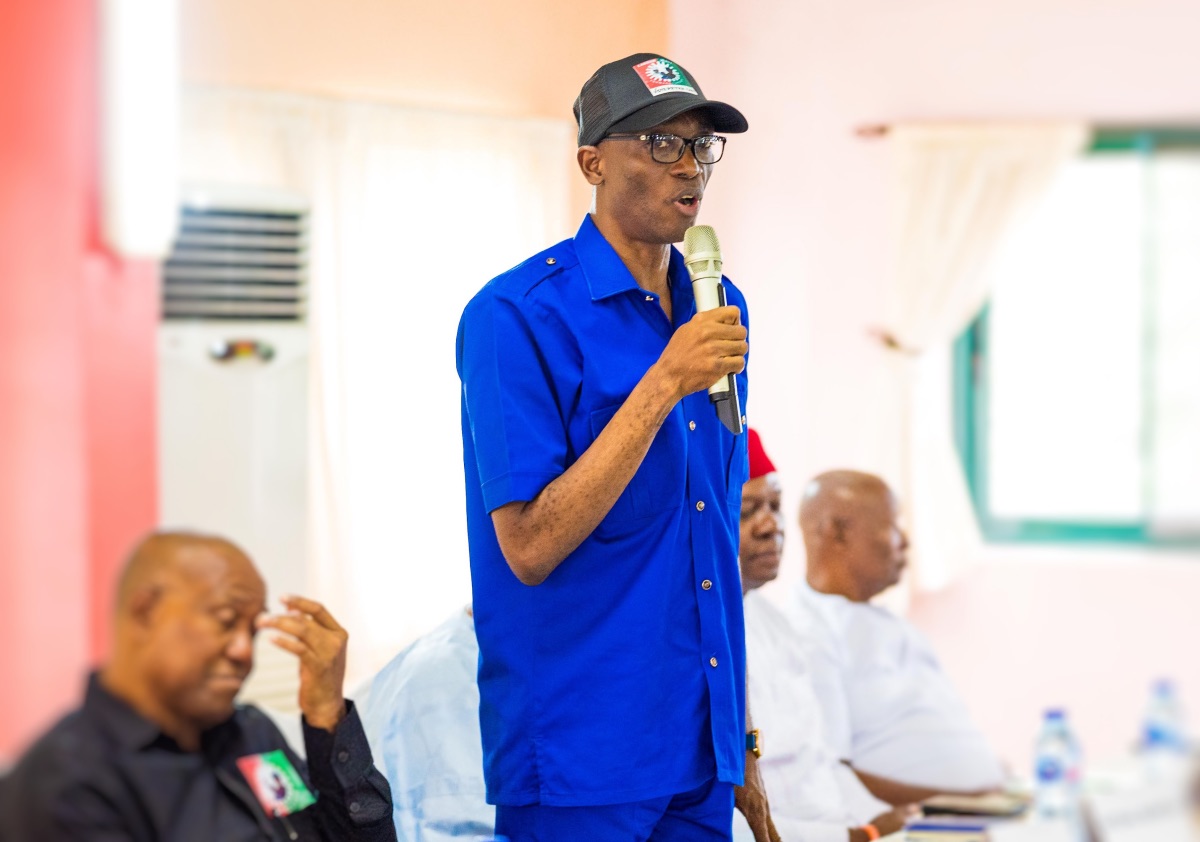ABUJA, Nigeria – The Supreme Court of Nigeria, in a landmark decision, has overturned the judgment of the Court of Appeal in Abuja, which had affirmed Julius Abure as the National Chairman of the Labour Party (LP).
This ruling, delivered on Friday, April 4, 2025, by a five-member panel of justices, significantly alters the political landscape of the Labour Party and clarifies the legal stance on party leadership disputes in Nigeria.
In a unanimous judgment, the apex court ruled that the Court of Appeal had overstepped its jurisdiction by affirming Abure’s position as the national chairman of the Labour Party.
The justices held that the matter was purely about internal party affairs, a domain in which the courts do not have jurisdiction to intervene.
The court emphasized that leadership disputes within political parties should be resolved internally, as these matters do not fall under judicial purview according to Nigerian law.
This judgment sets an important legal precedent, reinforcing the notion that the judiciary should refrain from becoming involved in the internal mechanisms of political parties unless there are exceptional circumstances.
The ruling effectively nullified the earlier decision of the Court of Appeal, which had recognized Abure as the national chairman.
The Court of Appeal’s decision was based on the assertion that Abure’s leadership of the party was legally valid.
However, the Supreme Court’s judgment made it clear that such a pronouncement was not within the court’s jurisdiction to make.
The justices also pointed out that Abure’s tenure as national chairman had already expired, a fact that further undermines the legal standing of the Court of Appeal’s judgment.
The Supreme Court also addressed the appeal filed by Senator Esther Nenadi Usman, which was found to be meritorious.
Usman, along with another party member, had filed the appeal against Abure’s leadership of the LP, arguing that the dispute should not be settled through judicial means.
The Supreme Court agreed with Usman’s argument, dismissing the cross-appeal filed by Abure’s faction of the LP, finding it to be unmeritorious.
In doing so, the Court affirmed that leadership issues within political parties are meant to be handled internally by the parties themselves, and not through the intervention of the judiciary.
The decision marks a significant moment in Nigerian political history, as it underscores the need for political parties to manage their internal disputes without resorting to the courts.
It is also seen as a victory for the principle of democracy, as it empowers party members to resolve leadership challenges in accordance with their own rules and regulations.
This ruling sends a clear message that the internal processes of political parties must be respected and upheld, and that external interference in party leadership matters is not acceptable under Nigerian law.
While the decision may have brought clarity to the Labour Party’s leadership dispute, it also raises important questions about the role of the judiciary in Nigerian politics.
In the past, courts have frequently been called upon to settle disputes within political parties, but the Supreme Court’s ruling highlights the need for such disputes to be handled within the framework of party constitutions and internal governance structures.
In the aftermath of this decision, the Labour Party will likely face a period of internal reflection and restructuring.
The leadership dispute, which has been a point of contention for several months, has now been definitively settled by the Supreme Court. It remains to be seen how the party will navigate this ruling and whether there will be any further challenges to its internal leadership.
The judgment is also likely to have broader implications for Nigerian politics, as it reaffirms the autonomy of political parties in determining their leadership.
The decision may influence other political parties that have been facing similar leadership challenges, providing them with a legal framework for resolving such disputes internally.
In the long term, this ruling could help to strengthen the democratic process in Nigeria by encouraging political parties to adhere more closely to their internal rules and regulations, reducing the need for judicial intervention in political matters.
In conclusion, the Supreme Court’s decision to overturn the Court of Appeal’s ruling on Julius Abure’s leadership of the Labour Party is a landmark ruling that reinforces the independence of political parties in Nigeria.
It highlights the importance of resolving leadership disputes within political parties and sets a legal precedent that may shape the way party leadership issues are handled in the future.
The ruling serves as a reminder of the need for parties to respect their internal processes and for the judiciary to avoid overreach into political matters.







